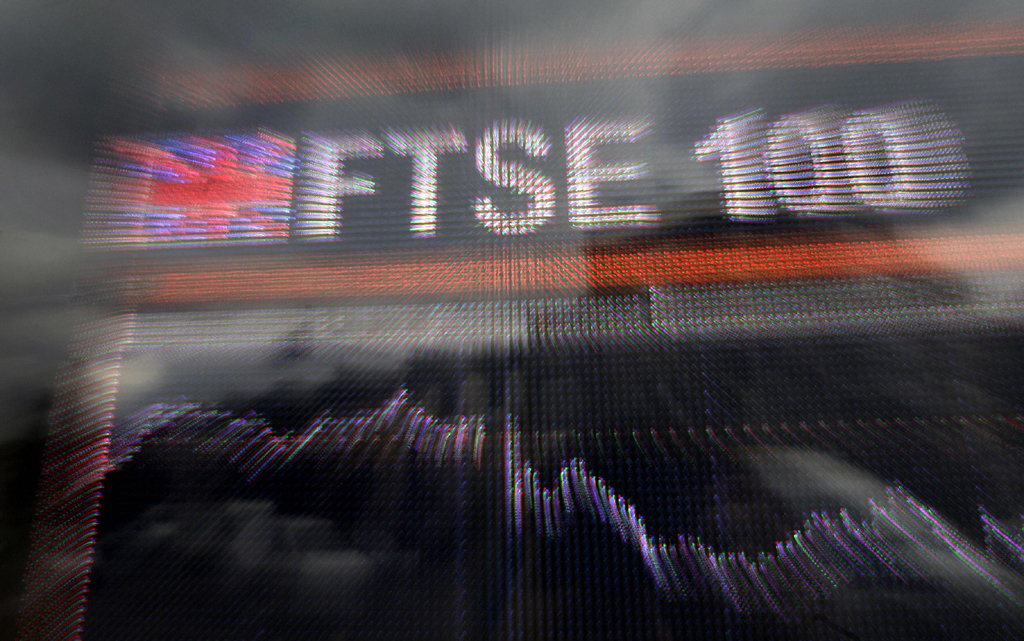 Britain's FTSE 100 fell as downbeat euro-zone PMI data emerged and investors booked profits before the Easter weekend.
Britain's FTSE 100 fell as downbeat euro-zone PMI data emerged and investors booked profits before the Easter weekend.
The FTSE 100 was down 0.3 percent by 0808 GMT. An index of mid-cap companies dropped 0.4 percent.
AstraZeneca and GlaxoSmithKline were among the biggest drags on the FTSE 100, following a sell-off in U.S. healthcare stocks over regulatory worries on Wednesday.
Unilever outperformed the index, gaining 3.3 percent after reporting stronger-than-expected quarterly underlying sales growth.
Jefferies analysts called the quarter a "decent start" to the year, while Hargreaves Lansdown's Laith Khalaf called Unilever a "stock market darling".
Financial stocks exposed to Asia fell, with HSBC, Prudential and Standard Chartered all in the red, after Asian share retreated from their nine-month highs, tracking losses on Wall Street.
Further marring the mood, Purchasing Managers Indexes showed unexpected weakness in the euro zone economy as demand barely rose.
"If Europe is still struggling, then we're not going to see any significant pick up in UK stocks, certainly not the more global ones, because we need to sell them stuff," CMC Markets analyst Michael Hewson said.
BAE Systems and Reckitt Benckiser, which were trading ex-dividend, lost 2.9 percent and 0.6 percent, respectively, on the FTSE 100.
Shell and BP also dropped along with oil prices, as strong U.S. crude oil production offset gains from OPEC-led supply cuts and a decline in U.S. crude inventories.
The equipment-rental company Ashtead rose 2.1 percent after a U.S.-based counterpart, United Rentals, posted better-than-expected first-quarter profit on Wednesday.
The FTSE 250 was dragged down by stocks trading ex-dividend. Motor insurer Hastings, power producer Drax and engineering firm Vesuvius were the worst performers.
But price comparison website Moneysupermarket.com jumped 7.6 percent after a rise in first-quarter revenue on strength across all its divisions.




























Comments
Comments are closed.